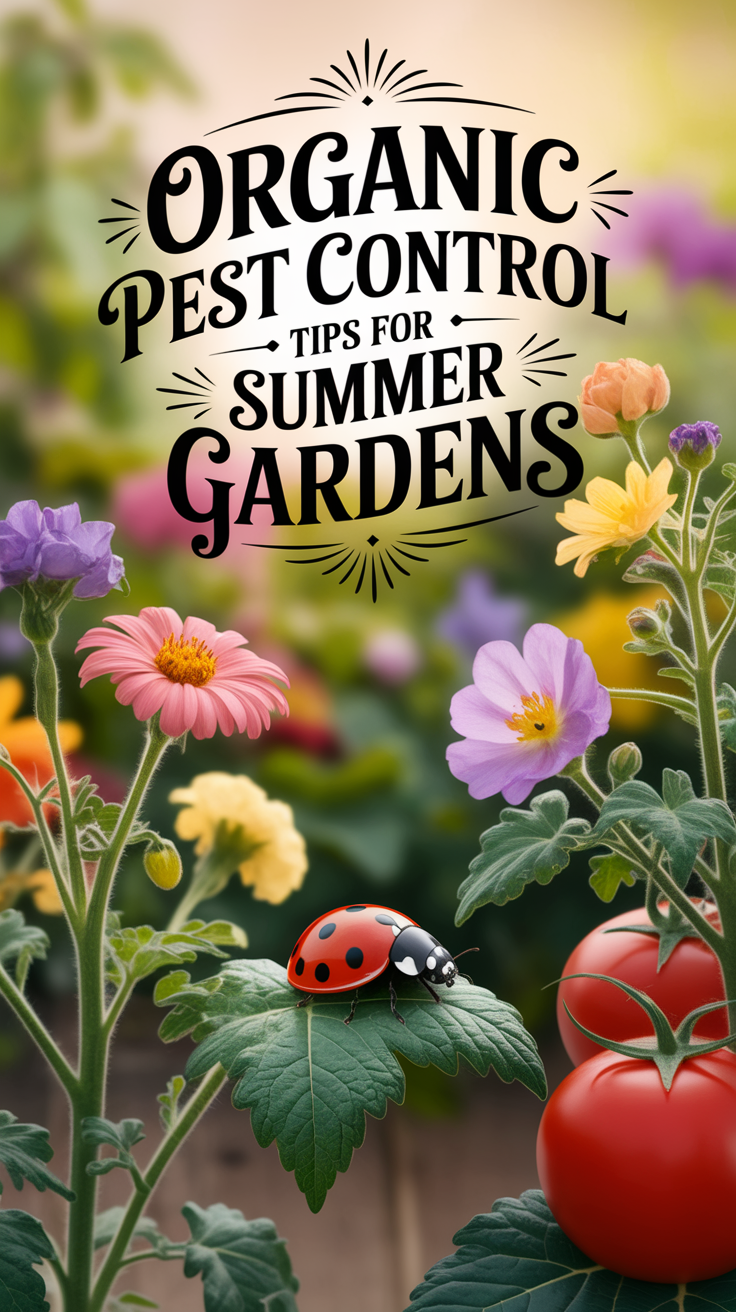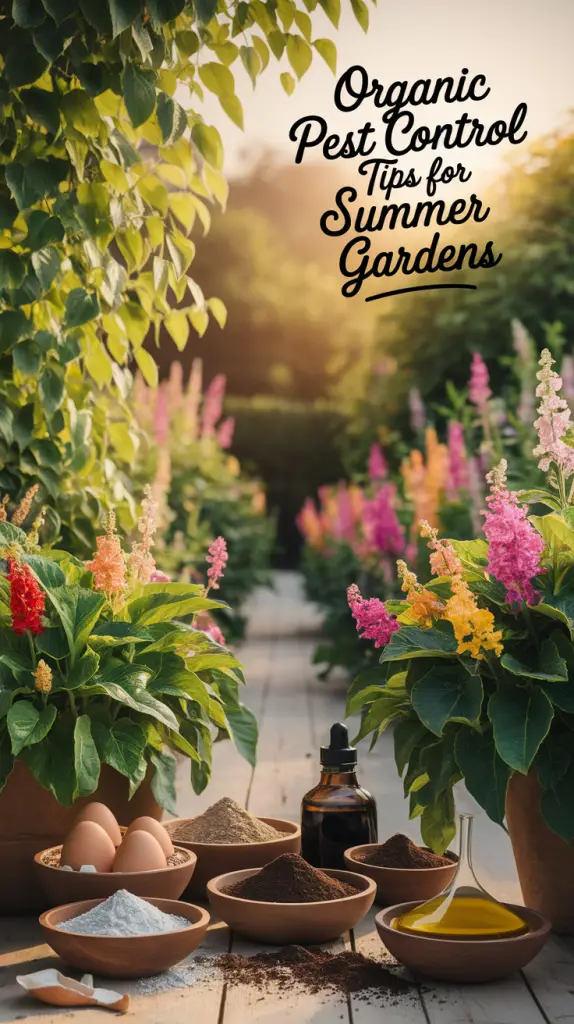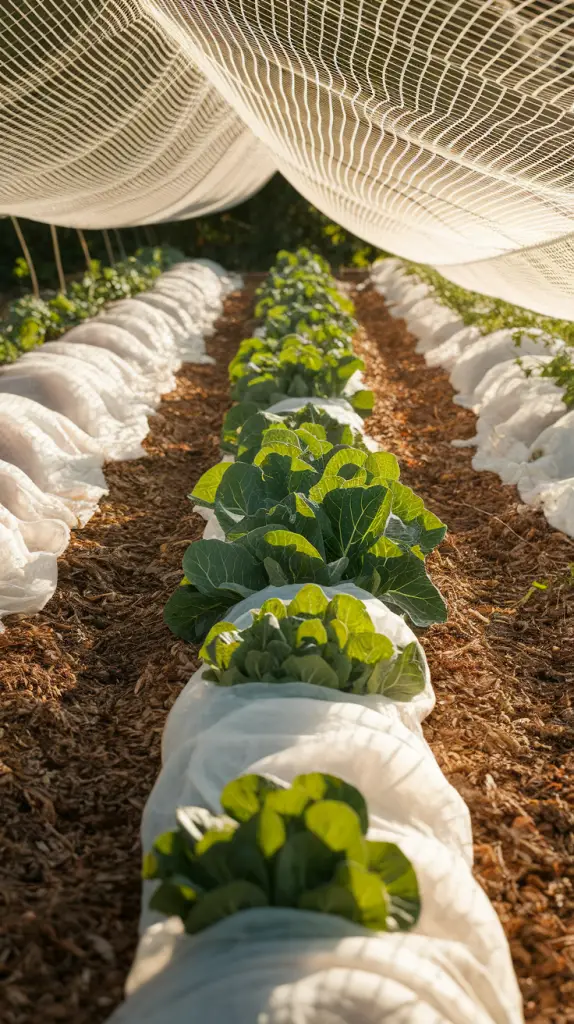Organic Pest Control Tips for Summer Gardens in 2025: Simple, Safe & Effective

From time-tested cures to innovative eco-solutions, this professional guide will provide the best organic pest control advice for summer gardens in 2025. These natural techniques will help you protect your plants without damaging helpful insects or the surroundings whether you’re caring a balcony herb garden or tomatoes in your backyard.
For whom is this article intended?
- Home gardeners looking to produce chemically free food.
- Eco-aware households looking for better, safer insect control.
- Beginning organic farmers and urban farmers.
Let us dig in and enable your landscape to flourish securely and naturally!
Why Organic Pest Control Matters More Than Ever in 2025
Shifts in climate are being seen by gardeners all throughout the United States. Pest outbreaks find ideal conditions amid hotter summers and erratic rainfall. Concurrent with this increased awareness of pesticide residues in food and their long-term consequences on pollinators, pets, and children is guiding people toward organic pest control.
Natural pest control goes beyond fads. This is a required change toward stronger, more environmentally friendly gardens.
So, is it really feasible to guard your plants without using poisonous sprays? Totally.
The following justifies the natural approach:
- Not any dangerous leftovers on vegetables, herbs, or fruits.
- Better for butterflies and bees among other pollinators.
- Preserves biodiversity and soil health.
- Long-term success via equilibrium of ecosystems.
“A garden treated organically thrives rather than just survives,” explains California-based certified permaculture designer Angela Ruiz.

The Ideas Underlying Organic Pest Management
What what does “organic” mean?
Working with nature rather than against it defines organic pest control. It stresses balance and resilience in the garden ecology rather than eradicating every insect that comes into view.
This approach calls for:
- Relying on natural ingredients (such as neem oil or garlic spray).
- Promoting useful insects.
- Building physical fortifications and obstacles.
- Constant plant monitoring helps one to respond early.
Advantages of Environmentally Friendly Pest Control
Let’s dissect the reasons for the great potency of this method:
- Better plants: Stronger immunity results from less chemical stress.
- Protection of pollinators: Crucially important for food output.
- Many of the affordable solutions make use of items from your kitchen already.
- For people with children and animals, peace of mind is family and pet safe.

Benefits of Organic Pest Management ( Table )
| Benefit | Description |
|---|---|
| No chemical residue | Safe to eat right after harvest |
| Eco-friendly | Supports soil and water health |
| Sustainable | Builds long-term pest resistance |
| DIY-friendly | Many home remedies available |
Top 7 Organic Pest Management Strategies Fit for 2025
Let’s go over the most dependable and easily available methods you might start applying right now:
1. Homemade Spray is Soap, Chili, and Garlic
These represent the holy grail of home pest control. Though soap helps solutions stick to leaves, garlic and chile have inherent repellant qualities.
How one might apply: Into one quart of water mix two crushed garlic cloves, one tsp chili powder, and several drops of dish soap. Let it sit over night; then, strain and spray.
Perfect for whiteflies, aphids, spider mites.
2. Biological Fix: Microorganisms and Beneficial Insects
Call for parasitic wasps, lacewings, and ladybugs. They are even available online!
Pro Tip: Create ladybug attraction by spraying sugar water or grow dill and fennel.
Also expected in 2025 is Bacillus thuringiensis (Bt), a bacterium-based bioinsecticide harmless for humans but lethal to caterpillars.
3. Companion Planting Aimed at Pest Prevention
Certain plants draw helpful insects or naturally resist others.
Good combinations:
- Marigolds close to tomato plants repels nematodes.
- Basil uses peppers to fight pests.
- Cucumbers in nasturtiums—trap crop for beetles—for beetles
4. Nets, Row Covers, and Mulch Create Physical Obstacles
Simple but powerful. Physical barriers keep insects away from your plants.
Utilize what:
- Either floating row coverings or fine mesh.
- Copper tape (slugs) determines slugs.
- Confounds insects and preserves moisture with straw mulch.

5. Neem oil: The Organic Gold Standard
Drawn from the neem tree, neem oil disturbs the life cycles of pests.
Apply diluted with water early morning or late evening by misting. Steer clear of spray during bloom to save pollinators.
Good against aphids, whiteflies, scale, thrips.
6. Peppermint, Rosemary, and Tea Tree Essential Oils
Natural oils work as repellant and mix pests with powerful smells.
Recipe calls for one teaspoon mild soap, one quart of water, ten drops of essential oil. Shake thoroughly then mist on impacted areas.
Fantastic for ants, spider mites, and certain beetles.
7. Customized Garden Maintenance on Demand
Preventive control is sometimes the best one available.
Easy habits to pick up are:
- Weekly remove damaged leaves
- Turn crops to stop bugs carried by soil
- Early in the day, water to help stop fungal spread

Design a weekly organic pest control schedule here
Keys are consistency. Plan how you will prevent and monitor pests.
Sample Weekly Schedule:
| Week | Task |
| Week 1 | Inspect all plants for pests; apply garlic spray |
| Week 2 | Add beneficial insect attractants (fennel, alyssum) |
| Week 3 | Apply neem oil on foliage (avoid pollinator hours) |
| Week 4 | Refresh mulch and prune infected leaves |
About ready to develop this habit? Create calendar reminders or make use of from seed to spoon or Planter’s garden planning tool.
Organic Garden Protection: Next Years to See
Here are the most important innovations in the fast changing field of environmentally friendly gardening:
- Microbial Pest Control: Like Metarhizium, biopesticides derived from fungus and bacteria are becoming rather popular.
- Solar-powered garden sensors run eco-sensitive alarms for insect activity.
- Bluetooth-connected smart traps track and identify early on infestations.
Keep informed; gardening is becoming highly technologically advanced without involving chemicals.
Last Advice Before You Get Going
- Act early; wait for infestations is not advisable.
- Combine many techniques for best effects.
- Know your opponent: find bugs before deciding on therapy.
- Track what performs in a garden diary.
Remember also: organic does not equate to useless. It implies clever, calculated, and sustainable.

In Summary, Your Garden and Your Rules—But Make Them Organic
You won’t need synthetic sprays this summer to raise healthy plants. Organic pest management may be not only successful but also empowering with the proper combination of natural treatments, consistency, and observation.
Which organic approach then most appeals to you to use this season?
Tell us in the comments or forward your best social media suggestion for combating pests!
